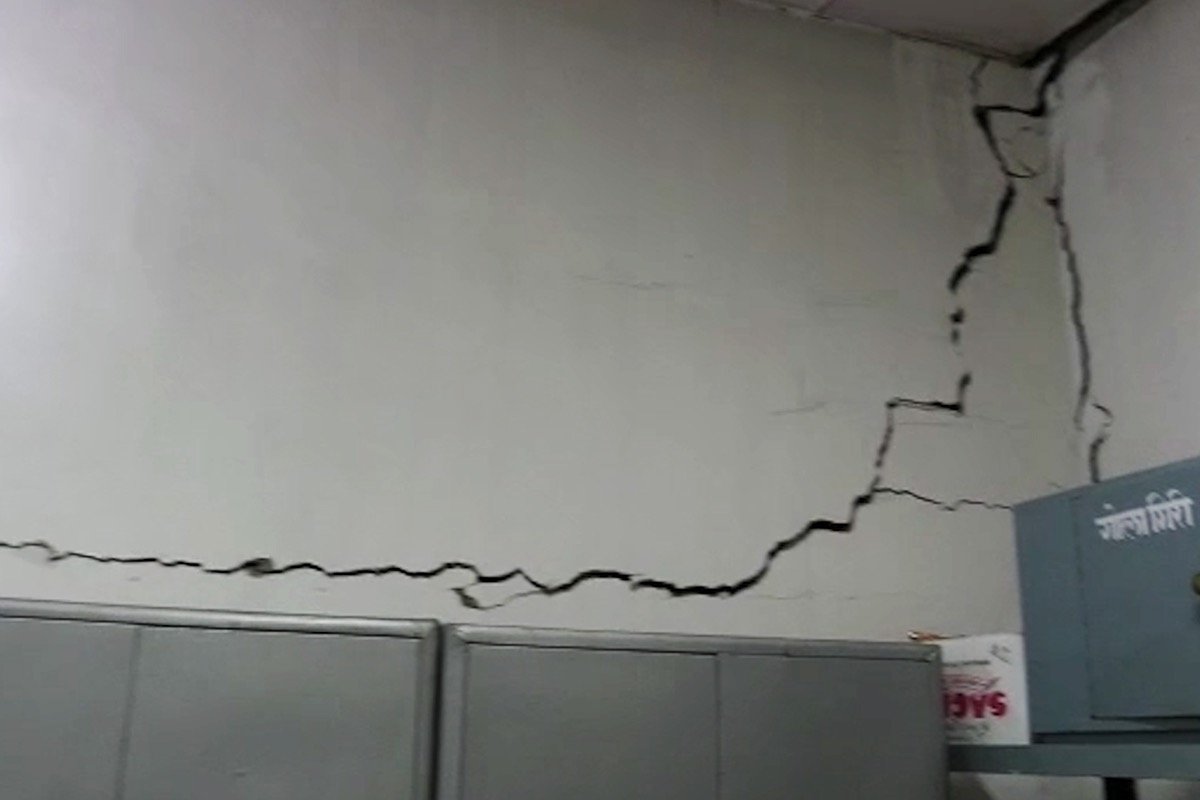At least 29 families have been evacuated to safer locations from their homes as continuing landslides pushed many buildings to the brink of collapse in Joshimath, Uttarakhand.
Environment activists say that the hill town, which works as a gateway to the famous temple site of Badrinath, is sinking.
Out of the 29 families, four families were shifted to a school, a family to the Joshimath development block building, and 16 others to the nagar palika parishad office in Chamoli district on Tuesday night.
More than 560 residential, commercial and government buildings have developed major cracks, affecting over 3000, according to Joshimath’s civic body chairman Shailendra Pawar. “The danger of collapse of houses has increased due to landslides in Joshimath this winter season. Nine civic wards in Joshimath are affected,” he said.
Many other families have vacated their houses and shifted to other locations to avoid any untoward incident, said a local.
Muddy water started flowing out of the ground at multiple places in the town, sending locals into a state of panic.
Perched at 6,000 feet, the town is the gateway for Badrinath, Auli, Hemkund Sahib and the UNESCO World Heritage site of Valley of Flowers. The town holds strategic importance with the presence of substantial numbers of army personnel stationed in the region.
Joshimath has been sinking for decades, with the Mishra Committee reporting it for the first time in 1976.
The state government has constituted an expert committee consisting of the Uttarakhand State Disaster Management Authority (USDMA), Central Building Research Institute, Roorkee, IIT-Roorkee, Wadia Institute, Dehradun and the Geological Survey of India.
The expert committee has been tasked with undertaking geological and geotechnical investigations. Its members visited Joshimath in August last year and found that the town was built on an unstable foundation which can give way in case of heavy rains, tremors, unregulated construction or far more footfalls than the town carrying capacity.
The committee has attributed the sinking to the number of concrete buildings that have mushroomed on the Joshimath-Auli route.
Experts blamed poor drainage and sewage systems, and erosion by rivers for the aggravating situation.
Last month, locals staged a demonstration demanding that the town be saved based on recommendations made by the expert committee — a ban on large-scale constructions and hydropower projects in the region.












